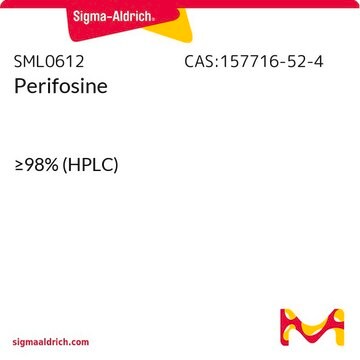850456P
Avanti
16:0-18:0 PC
Avanti Research™ - A Croda Brand
Synonym(s):
1-hexadecanoyl-2-octadecanoyl-sn-glycero-3-phosphocholine; PSPC; PC(16:0/18:0)
About This Item
Recommended Products
Assay
>99% (TLC)
form
powder
packaging
pkg of 1 × 1 g (850456P-1g)
pkg of 1 × 25 mg (850456P-25mg)
pkg of 1 × 500 mg (850456P-500mg)
manufacturer/tradename
Avanti Research™ - A Croda Brand
lipid type
phospholipids
cardiolipins
shipped in
dry ice
storage temp.
−20°C
SMILES string
[O-]P(OCC[N+](C)(C)C)(OC[C@]([H])(OC(CCCCCCCCCCCCCCCCC)=O)COC(CCCCCCCCCCCCCCC)=O)=O
InChI
1S/C42H84NO8P/c1-6-8-10-12-14-16-18-20-21-23-25-27-29-31-33-35-42(45)51-40(39-50-52(46,47)49-37-36-43(3,4)5)38-48-41(44)34-32-30-28-26-24-22-19-17-15-13-11-9-7-2/h40H,6-39H2,1-5H3/t40-/m1/s1
InChI key
PZNPLUBHRSSFHT-RRHRGVEJSA-N
General description
Application
Biochem/physiol Actions
Packaging
Legal Information
Storage Class Code
11 - Combustible Solids
WGK
WGK 3
Flash Point(F)
Not applicable
Flash Point(C)
Not applicable
Choose from one of the most recent versions:
Certificates of Analysis (COA)
It looks like we've run into a problem, but you can still download Certificates of Analysis from our Documents section.
If you need assistance, please contact Customer Support.
Already Own This Product?
Find documentation for the products that you have recently purchased in the Document Library.
Customers Also Viewed
Our team of scientists has experience in all areas of research including Life Science, Material Science, Chemical Synthesis, Chromatography, Analytical and many others.
Contact Technical Service














